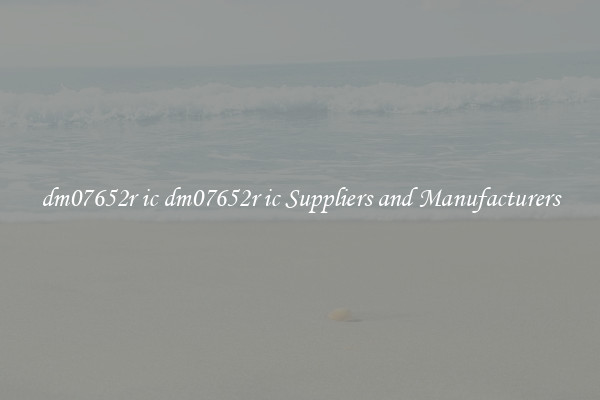emc noise emc noise Suppliers and Manufacturers
EMC Noise: Understanding the Role of Suppliers and Manufacturers

Electromagnetic Compatibility (EMC) noise is a key consideration in the design and production of electronic devices. As the world becomes increasingly reliant on technology, it is crucial to mitigate the interference caused by EMC noise. To achieve this, suppliers and manufacturers play a critical role in ensuring that their products comply with EMC regulations and standards.
Suppliers are responsible for providing high-quality components that are EMC compliant. These components, such as capacitors, inductors, and resistors, have a significant impact on the overall performance of electronic devices. Choosing the right suppliers who prioritize EMC noise reduction is essential in meeting the required electromagnetic compatibility standards.
Quality control is crucial at every stage of the manufacturing process. Manufacturers must test the components they acquire from suppliers to guarantee their compliance with EMC standards. This involves carefully analyzing the electrical characteristics of the components and ensuring that they do not generate or amplify electromagnetic interference.
Moreover, manufacturers must consider the design of the printed circuit boards (PCBs) used in their products. PCBs are responsible for interconnecting various components, and inadequate design can lead to EMC noise issues. Manufacturers must utilize techniques like grounding, shielding, and routing to reduce the chances of EMC noise generation and crosstalk between components.
Manufacturers must also pay attention to the enclosure of electronic devices. The housing should be properly designed to prevent external electromagnetic interference from affecting the performance of the device. Shielding the enclosure using conductive materials can significantly reduce the impact of EMC noise.
To ensure compliance with EMC regulations, suppliers and manufacturers need to invest in testing equipment. EMC testing involves subjecting electronic devices to various electromagnetic fields to assess their ability to withstand interference. This testing allows manufacturers to identify and address any potential issues related to EMC noise before the products reach the market.
Furthermore, adherence to EMC standards is not only essential for regulatory compliance but also for maintaining customer satisfaction. Consumers expect their electronic devices to perform reliably and without interference. By ensuring EMC compliance, suppliers and manufacturers can build trust with their customers, creating a positive reputation for their products.
It is important for suppliers and manufacturers to stay updated with the latest EMC regulations and standards. The field of EMC is continuously evolving, and non-compliant products may face legal consequences, recalls, and public backlash. Collaboration with EMC experts and regularly attending industry conferences can help suppliers and manufacturers stay informed about any changes in the standards.
In conclusion, EMC noise is a significant challenge in the design and production of electronic devices. Suppliers and manufacturers play a crucial role in ensuring compliance with EMC standards. By carefully selecting EMC compliant components, conducting thorough testing, and implementing proper design techniques, suppliers and manufacturers can deliver high-quality products that meet the requirements of both regulators and consumers.

View details

View details

View details

View details








